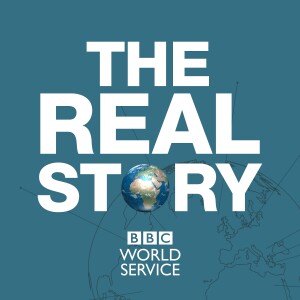
So far, people in cities have borne the brunt of Covid-19. Coronavirus thrives when humans interact in shared spaces where infections are easily transmitted. Because of this, many column inches have been dedicated to predicting the demise of urban living and a revival of suburbs, towns and villages. But the fact remains the majority of us live in urban settings and people will need to keep seeking out the economic and social opportunities that cities provide. So, if cities are here to stay, how will coronavirus change them? Some aspects of city living that came in for criticism before the virus now seem unviable. Urban density was already a problem with so much cramped and scarce housing. Now, for many, it’s intolerable. Long commutes on dirty, crowded public transport will no longer do. Cars, roads and parking lots claiming vast outdoor areas no longer makes sense if we are to spend more time outdoors. And, in developing world cities, how much longer can poor sanitation and lack of running water be ignored when neglecting basic infrastructure will likely lead to new deadly outbreaks? Policy makers have, in the past, flirted with tackling the big problems in cities - but these problems haven’t gone away. So in the end, will the pandemic force drastic changes to urban design? Ritula Shah is joined by a panel of expert guests.
view more
More Episodes
Africa's digital transformation
 2019-07-05
2019-07-05
 2019-07-05
2019-07-05
The vaccination divide
 2019-06-21
2019-06-21
 2019-06-21
2019-06-21
Syria: Assad's endgame
 2019-06-14
2019-06-14
 2019-06-14
2019-06-14
What does the future hold for the Rohingya?
 2019-06-07
2019-06-07
 2019-06-07
2019-06-07
The new technology cold war
 2019-05-24
2019-05-24
 2019-05-24
2019-05-24
Does WikiLeaks matter?
 2019-05-17
2019-05-17
 2019-05-17
2019-05-17
Can nature be saved?
 2019-05-10
2019-05-10
 2019-05-10
2019-05-10
China's Arctic ambitions
 2019-05-03
2019-05-03
 2019-05-03
2019-05-03
Is social media killing elections?
 2019-04-26
2019-04-26
 2019-04-26
2019-04-26
The return of the eco-warriors
 2019-04-19
2019-04-19
 2019-04-19
2019-04-19
Has Brexit broken UK politics?
 2019-04-12
2019-04-12
 2019-04-12
2019-04-12
Has the International Criminal Court failed?
 2019-04-05
2019-04-05
 2019-04-05
2019-04-05
What’s at stake in India’s election?
 2019-03-29
2019-03-29
 2019-03-29
2019-03-29
Who are the far-right extremists?
 2019-03-22
2019-03-22
 2019-03-22
2019-03-22
What’s going on at the US-Mexico border?
 2019-03-15
2019-03-15
 2019-03-15
2019-03-15
Has China's economy peaked?
 2019-03-08
2019-03-08
 2019-03-08
2019-03-08
Are referendums ever a good idea?
 2019-02-22
2019-02-22
 2019-02-22
2019-02-22
012345678910111213141516171819
Create your
podcast in
minutes
- Full-featured podcast site
- Unlimited storage and bandwidth
- Comprehensive podcast stats
- Distribute to Apple Podcasts, Spotify, and more
- Make money with your podcast
It is Free
- Privacy Policy
- Cookie Policy
- Terms of Use
- Consent Preferences
- Copyright © 2015-2024 Podbean.com



